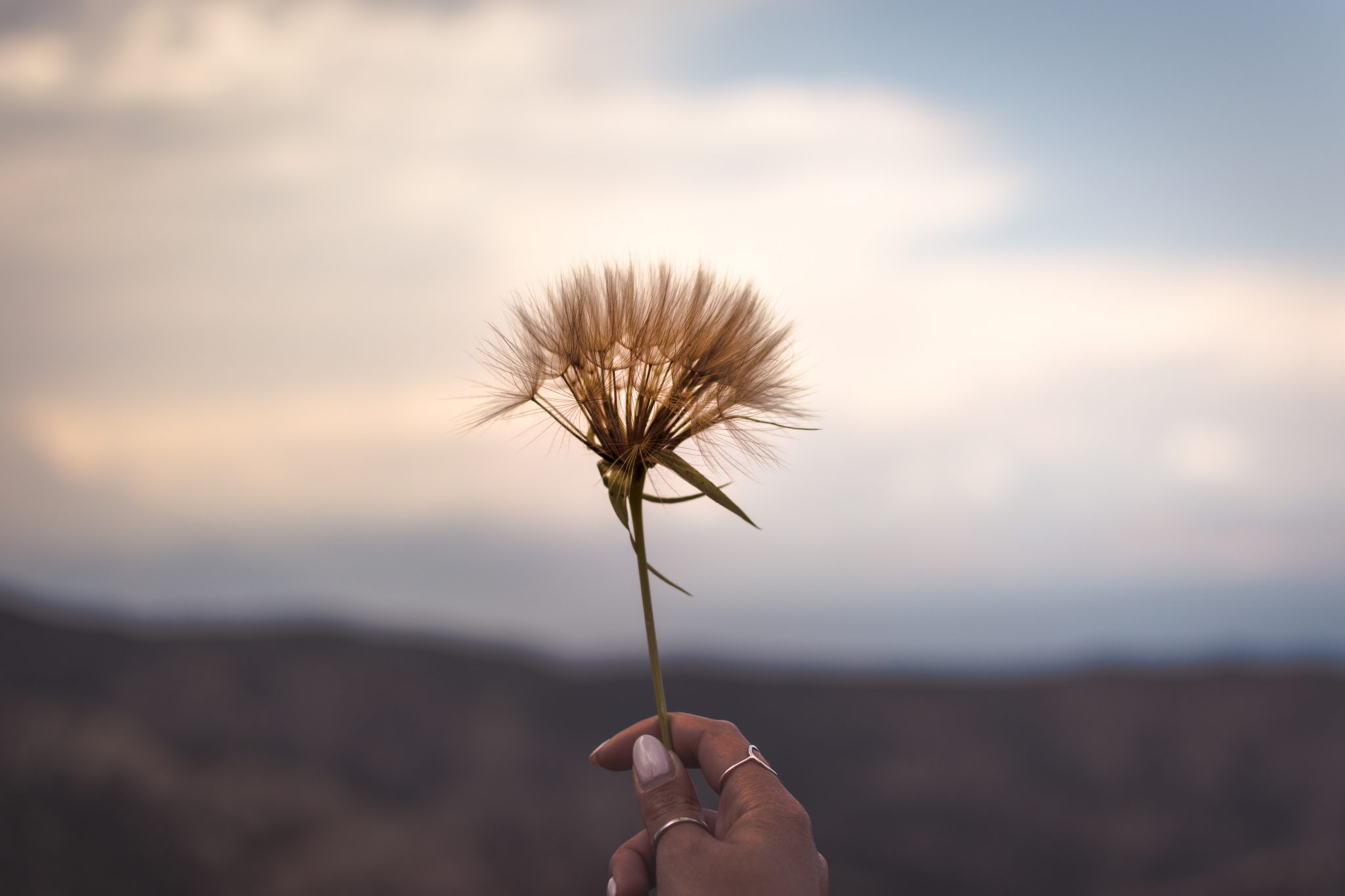Written by Serena Smith
If 2020 taught us anything, it was the value of seeing silver linings even in the bleakest of times. Here are the secrets of the glass-half-full gang.
We’re told there are two types of people in the world: those who see the glass as half empty, and those who see it as half full. If, like me, you’re fixated on the empty half of your glass, you might gawp at those who manage to get on with everything the world throws at them, brushing aside turmoil like water off a duck’s back. While this may look effortless, optimism is definitely a skill. Given the chaos of last year, a lot of us are now looking to learn how to make the best of a bad situation; how to accept it when awful things happen that are out of our control; how to put things in perspective.
It’s important to learn, too. Rebecca Lockwood is a neuro-linguistic programming coach, and she says that being an optimist can hugely benefit your mental health. “When we have an optimistic mindset it allows us to relax,” she explains. “We will feel as though we know things are always going to work out for the best.”
Optimism is undoubtedly a valuable life skill to hone. We spoke to 10 self-proclaimed optimists to ask them the secret to staying positive: here’s what they had to say.
“I think the key to staying optimistic is understanding what really matters in life; it’s the simple things, so not what’s in your bank account, what car you drive, or whether you’ve got a five-bedroom detached house or not. It’s appreciating what you do have, such as the roof over your head, the food in your cupboards, or having family only a phone call away.”
Claire, 30, Leeds
“I am probably a strange optimist because I also have severe and enduring anorexia and depression. But what this means is that I strive really hard to make everything better than my mind might initially make out, or every day better than the last. I also think my innate curiosity helps – my advice would be to be curious. Once you start asking questions you will see that the world is a fascinating place to get out and explore.”
Francesca, 33, Kent

“All things considered, I probably shouldn’t be an optimist. I was born with a serious heart condition meaning I had to undergo major surgery throughout my childhood. When I was a teenager, I had the wrong tooth extracted and spent most of secondary school without a front tooth. My parents are also first generation immigrants, so they didn’t have a support network whilst their child was going through this. But now, later in life I wonder if that’s why I’m an optimist. If myself and my parents can make it through that, we can survive anything. It’s about perspective, I think. Knowing that even if the best outcome doesn’t happen, having your health and a roof over your head isn’t a bad outcome either.”
Sinéad, 26, Hampshire
“I think my optimism comes from knowing what I can and cannot change, both big and small. I was raised in a church-going Christian family and that kind of upbringing can make you feel like you’re a part of something much bigger, much more unknowable, and much more out of your control. In my case, there was a lot of chronic illness and poverty in my family growing up as well, which you can’t really change. For some of the time I was very unhappy but, to me, optimism doesn’t mean you’re mindlessly happy all the time. It means you’re positive where you can be, with a combination of pragmatism and hope.”
Chloe, 25, Shropshire
“I don’t think it [is] in my character to be optimistic: I choose to be that way. I used to have a lot of anger within me because of childhood trauma, insecurity, unfairness and injustice. I was getting nowhere with that attitude so I made a decision to work on myself. [During] lockdown, I wrote 10 things I am grateful for every morning, exercised, meditated, and listened to positive thinking podcasts. It took me a while to adjust to this new set of habits but I love doing all this now. Life still has its ups and downs, and the unfairness and injustice of the world is hurtful. But Ibelieve that in order to make your contribution to society, you need to maintain your sanity and love yourself.”
Yaourou, age not disclosed, London
“I think about my Grandad and his favourite saying: “If you worry about something you can’t change, you suffer twice. Why bother putting yourself through that?”. [Last] year I started meditating and journaling to help my mental health, getting out all the negativity on the page so it’s out of my head and so I can make space for positive thoughts. It’s still a struggle to stay optimistic of course but by actively trying to shift my thought process, I’ve felt happier and lighter for it.”
Esther, 26, Suffolk
“The key to being optimistic is in how you approach things; it’s about a shift in perspective. Instead of focusing on the negative or dwelling on misfortune, optimistic people use the negatives to spur them forward. I also find being colourful helps: I’m 38 and I have four kids but I’m dressed like a rather exuberant child often, with food-shaped handbags and Disney print leggings, blasting music from my favourite musicals around the house and cuddling and reading with my kids.”
Jennifer, 38, London

“I would describe myself as a realistic optimist. I don’t necessarily go through life kidding myself that everything is perfect. However, I always choose to see the positive outcome or the positive side of a situation because I believe that everything happens for a reason, and most experiences are designed to teach us something about ourselves.”
Maxine, 24, London
“For me, it is all about the belief that whatever is happening has some hidden good in it. For example, [in 2020] I had to shut down my three-year-old events company due to Covid but I believed that maybe something better will come out of it and it did. I found a job in June with a title which was lower than what I held in the past but I accepted the offer. The company liked me so much that they promoted me to the senior title. I love my job so much now that I don’t miss running my business. So, being optimistic helps me to quickly adapt to new situations as my faith in God tells me that the new situation has brought great opportunities for me.”
Kriti, 33, Southend
“‘Practise the discipline of gratitude in both the good times and the bad.’ I wrote this quote for my debut book, Walk With Wings, as in my bouts of depression, I completely lost sight of all the beauty in my life. I focused all of my energy on the ugly and I beat myself down. It was only when I began to write a gratitude list every morning that I started to disconnect from the toxic, negative emotions and overthinking that accompanied them. Instead of dwelling on the negative, I searched for the lessons and this helped rewire my mind to focus on opportunities over obstacles.”
Tene, 27, London
Hero image: Malte Mueller/Getty, other images Getty
Source: Read Full Article